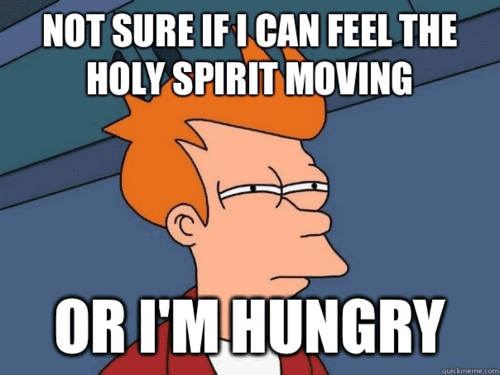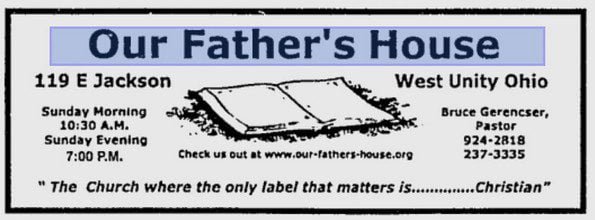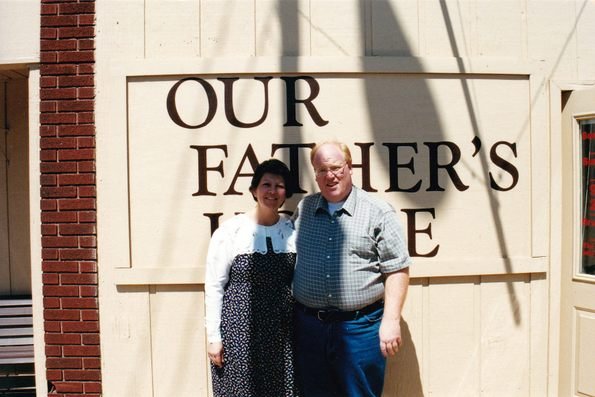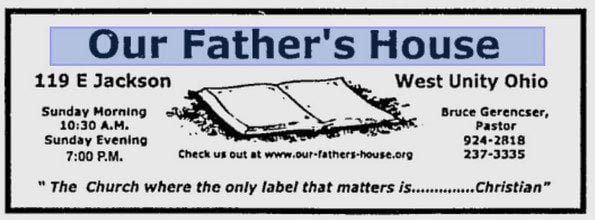
The Holy Spirit/Holy Ghost is the third person — an incorporeal spirit — in the Trinity: God, the father, God, the son, God, the Holy Spirit. I grew up in the Independent Fundamentalist Baptist (IFB) church movement. IFB churches are Evangelical theologically. After high school, I attended Midwestern Baptist College — an IFB institution in Pontiac, Michigan. While at Midwestern, I met a beautiful, dark-haired preacher’s daughter. The summer between our sophomore and junior years, we married, and the following year we left college, beginning a twenty-five-year journey pastoring churches.
As a Baptist, I was taught that the Holy Spirit was instrumental in salvation, lived inside of believers after salvation as our teacher and guide in everything pertaining to life and godliness, and, on occasion, endued us with the power to do mighty exploits in Jesus’ name. Pastors and church members frequently talked about being “led by the Spirit” or the Holy Spirit showing them the will of God for their lives. I would maintain these beliefs about the Holy Spirit until the late 1990s when my pneumatology — the branch of Christianity concerned with the Holy Spirit — changed.
Evangelicals fall into two categories when it comes to the “gifts of the Spirit”: cessationist and non-cessationist (continuationism). In the gospels and the book of Acts, we find Jesus and his disciples performing miracles and engaging in other supernatural acts such as speaking in languages they hadn’t learned. In Mark 16:16-20, we find these amazing verses:
And he said unto them, Go ye into all the world, and preach the gospel to every creature. He that believeth and is baptized shall be saved; but he that believeth not shall be damned. And these signs shall follow them that believe; In my name shall they cast out devils; they shall speak with new tongues; They shall take up serpents; and if they drink any deadly thing, it shall not hurt them; they shall lay hands on the sick, and they shall recover. So then after the Lord had spoken unto them, he was received up into heaven, and sat on the right hand of God. And they went forth, and preached every where, the Lord working with them, and confirming the word with signs following. Amen.
Several things stand out in this passage of Scripture. First. Jesus commands his disciples to go into all the world and preach the gospel to every creature. Second, Jesus explains what is required for unbelievers to be saved: he that believes and is baptized shall be saved. Third, Jesus says that certain “signs” shall follow those who believe and are baptized: cast out devils, speak with new tongues, take up [poisonous] serpents, drink any deadly thing and it shall not hurt them, and lay hands on the sick, and they shall recover.
After Jesus said these things, he ascended to Heaven, never to be seen again. What did Jesus’ disciples do? They immediately followed Christ’s command to preach the gospel everywhere, and signs (as mentioned in Mark 16) confirmed that their words were true.
Cessationists believe that the signs mentioned in Mark 16 and others throughout the Biblical text ceased after Jesus ascended to Heaven and the Holy Spirit was given to believers in Acts 2, on the Day of Pentecost. I always found it interesting that Jesus told his disciples about specific signs that would follow them as they preached the gospel, yet the moment he ascended to Heaven, he sent the disciples a text that said, “Ha! Ha! Forget all that sign stuff I was talking about.”
While cessationists certainly believe that God, through the Holy Spirit, can do miraculous things, such things are extraordinary, not the norm. Baptists, for the most part, are cessationists.
Non-cessationists: Pentecostals, Charismatics, Apostolics, United Pentecostals, and other Evangelical sects, believe spiritual gifts are valid and in force today. According to them, the miracles Jesus, the apostles, and the early church performed can still be done today by Jesus’ followers. Thinking about sign gifts among non-cessationists has evolved over the years. Today? No sign or miracle is out of bounds. Turn on any Christian TV channel, and you will see this illustrated firsthand. Crazy stuff, to be sure, but is it really any crazier than casting out devils, speaking with new tongues, taking up [poisonous] serpents, drinking any deadly thing and it shall not hurt them, and laying hands on the sick, and they shall recover?
Who is right? Cessationists and non-cessationists, both appeal to the Bible as justification for their beliefs. Both sides seem to be right, depending on which passage of Scripture you are reading. Gallons of metaphorical blood has been spilled between cessationist and non-cessationist Christians. Both sides demean the other, even going so far as cessationists saying that some non-cessationists are demon-possessed or headed for Hell.
I was part of the Evangelical church for fifty years. I embraced the cessationist beliefs of the churches I grew up in. As a college student, I took one class on pneumatology — a boring, cursory, Sunday school-level class on the Holy Spirit.
The summer after my freshmen year of college, I happened to be at the county courthouse in downtown Bryan. While walking towards the courthouse, I was accosted by a Pentecostal preacher who started quizzing me about my religious beliefs. I was quite happy to share with him my testimony; that I was a Bible college student, preparing to be a pastor. Toward the end of his interrogation, he asked me whether I had been “baptized with the Holy Ghost.” I had no idea what he meant.
Over the years, I would interact with other Christians about the Holy Spirit. As a general manager for Arthur Treacher’s in the early 80s, I got into a discussion with a Church of Christ preacher at the restaurant about salvation. I remember him telling me, “Baptists wouldn’t know the Holy Spirit if he met them in the middle of the road!” We went back and forth, citing Bible verses. Neither of us budged an inch. Certainty met certainty over Fish and Chips. 🙂
In the early 90s, as I was preaching on a street corner in downtown Zanesville, a city bus driver pulled his vehicle up to the corner, opened the door, and beckoned me to come close. He said to me, “have you been baptized in the name of Jesus for the remission of sins, and spoke in tongues as a sign that your sins have been forgiven?” I replied, “no.” He then said to me, “You seem like a nice guy, preacher. Too bad you aren’t saved.” And with that, he closed the bus door and drove off.
In 1995, I started a new church, Our Father’s House, in the rural Ohio village of West Unity. By that time, I was a Calvinist. As I continued to devour Calvinistic books and listened to Calvinistic sermons, I came across non-cessationists such as John Piper, Wayne Grudem, Greg Boyd, Martyn Lloyd Jones, and others. Their view of spiritual gifts made sense to me; that God was still in the business of working miracles. While I rejected the nonsense seen in Charismatic churches, I came to see that I was boxing God in by not accepting that it was still possible for the Holy Spirit to work in and through his church as he did in the first century. For the latter part of my time in the ministry, I was much more open to what God could do through me and among the people I pastored.
In the late 1980s, I realized that I had been living a sheltered life. Up until then, I had only attended IFB churches. Outside of attending a Methodist church service in 1972 for the purpose of trying to get a redheaded girl to go on a date with me, I had never attended a non-IFB church. I was thirty years old before I visited an Evangelical church that was not affiliated with the IFB church movement.
I was pastoring Somerset Baptist Church in Mount Perry, at the time — a church I planted in 1983 — when I visited my first non-IFB church. Due to budget-breaking increases in propane prices, we decided not to have services on Sunday evenings. This afforded me the opportunity to visit other churches. Sometimes, I preached for other churches on Sunday nights. I also visited other churches: Church of Christ, Assembly of God, Amish Mennonite, Charismatic, and mainline congregations, to name a few. I also visited a plethora of non-denominational churches. Sometimes I went alone, other times, my family or members from our church went with me. These experiences exposed me to Christianities I knew very little about. I learned beliefs about the Holy Spirit were varied, sometimes wildly so. These visits opened me up to the wonderful, rich Christian community. They also, however, left me with the question: if there is “one Lord, one Faith, one Baptism,” why are there so many varied beliefs, with each sect, church, pastor, and congregant believing they are right?” Maybe this was when my “doubts” first began. As with many Evangelicals-turned-atheists, the longer I am away from Christianity and the more I think about my years as a believer, I start to see cracks in my faith and beliefs that I hadn’t noticed before.
Did your understanding of the Holy Spirit change over time? Please share your experiences in the comment section.
Bruce Gerencser, 66, lives in rural Northwest Ohio with his wife of 45 years. He and his wife have six grown children and thirteen grandchildren. Bruce pastored Evangelical churches for twenty-five years in Ohio, Texas, and Michigan. Bruce left the ministry in 2005, and in 2008 he left Christianity. Bruce is now a humanist and an atheist.
Connect with me on social media:
Your comments are welcome and appreciated. All first-time comments are moderated. Please read the commenting rules before commenting.
You can email Bruce via the Contact Form.
Late 80s, started attending different churches — had no experience



